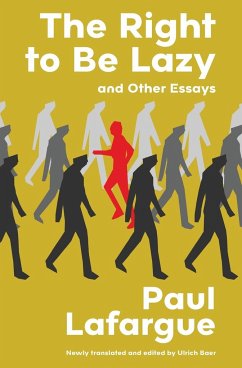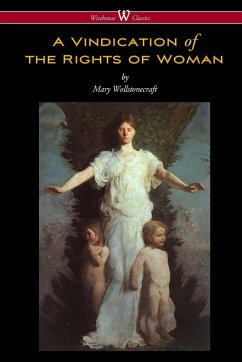This newly revised and corrected translation of Lafargue's classic The Right to Be Lazy includes "The Woman Question," "The Bankruptcy of Capitalism," "Some Simple Socialist Truths," and his "Personal Recollections of Karl Marx," along with detailed notes and a biographical timeline by translator Ulrich Baer. Work gives meaning to your life, makes you a valuable member of society, and provides you the money to enjoy pleasure, leisure, and the good life. In his timeless and spirited manifesto, The Right to Be Lazy, Lafargue destroys these toxic yet enduring myths. He shows that work straightjackets your mind and body, enslaves you to ruling elites, and betrays the workers of the world. He refutes economists, philosophers, and pundits who promote the notion of a "right to work" as the foundation of a well-functioning society and personal happiness. The Right to Be Lazy is a persuasive rethinking of what lends true meaning and value to our lives.
Bitte wählen Sie Ihr Anliegen aus.
Rechnungen
Retourenschein anfordern
Bestellstatus
Storno









